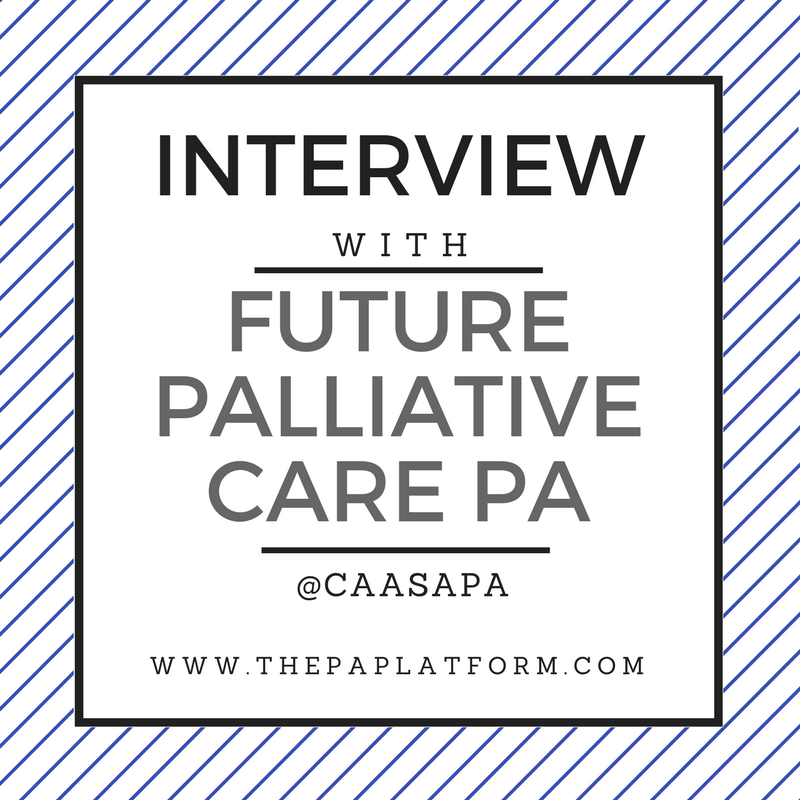Catherine Anna reached out on Instagram to share her interest in the field of palliative care as a PA. I can't say that I personally know any PAs who work in palliative care, so I actually learned a good bit from this interview as well. If you have any questions about UAB or Catherine Anna's plans feel free to reach out to her on Instagram by following @caasapa
Give me a quick introduction and a little bit on your background (name, undergrad, where you're at in PA school, etc).
My name is Catherine Anna McCarty. I attended the University of Alabama at Birmingham for undergrad, my Master's in Public Health, and currently for PA school. Go Blazers! I am currently in my first semester of didactic.
What is palliative care?
Palliative care is a specialty that focuses on improving the quality of life for those with serious or terminal illness. Usually, a team made up of not only clinicians but other specialists such as physical therapists, massage therapists, chaplains, dietitians, and psychologists takes care of patients together. The interdisciplinary team works to treat symptoms such as pain, nausea, fatigue, and anxiety as well as assist in advanced care planning.
How did you become interested in palliative care?
I accepted a position within a palliative care department working with breast cancer patients. At the same time that I was starting that job and really discovering what palliative care was, I was also experiencing the health care system for the first time as someone with a chronic condition. I realized the necessity of a specialty that focused on improving quality of life and allowed patients to define what that meant. It’s empowering as a patient to be listened to and to take back control from illnesses that directly impact how you experience life. I wanted to be a part of a specialty that had the ability to do so much good in people’s lives.
Why is it difficult to find PAs in specific specialties?
In regards to palliative care, I think it comes down to the history of the profession and exposure. The history of the PA profession is that of clinicians that practice curative as well as procedure-driven medicine; that which palliative care is not. The most recent literature I have found notes there are only 15 PAs practicing in the field of palliative medicine. Therefore, there are limited opportunities for exposure for pre-PA or PA students. I hope to increase the visibility of PAs in palliative medicine throughout my career and see a huge growth of practicing palliative PAs during my lifetime.
What advice would you give to an applicant who is very interested in a specific specialty?
It is great to have a passion for a specific field of medicine, but it's important not to discount the value of other specialties. Most of your clinical rotations will take place outside of the specialty you’re passionate about. It’s important to be open to absorbing as much knowledge and skills as you can from as many specialties as you can.
What has been most challenging about PA school so far?
Reframing how I think about learning. During my undergraduate career, I was able to study the night before and make an A on an exam. All of my efforts were focused on obtaining a certain letter grade whereas in PA school, my efforts have shifted to learning the material I need to be a competent and capable clinician.
What is your one best tip for Pre-PA students?
Invest the time, effort, and grit it takes to master your prerequisite courses so you have a strong foundation to start from once you begin a PA program. It will make the adjustment to PA school a little easier.


















